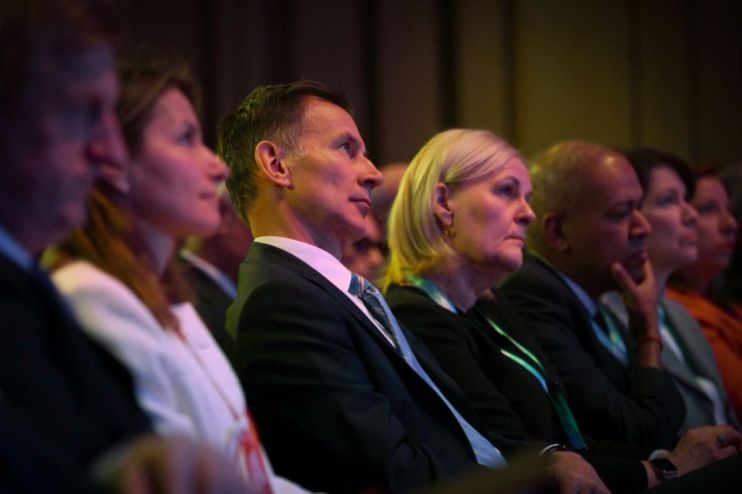Jeremy Hunt handed £13bn windfall raising chance of tax cuts ahead of election

Chancellor Jeremy Hunt has been handed a £13bn windfall from the UK public finances holding up better than expected, raising the chances of tax cuts ahead of the next general election, official figures out today reveal.
Numbers from the Office for National Statistics (ONS) this morning showed the UK borrowed around £139bn in the year to March, about 5.5 per cent of GDP and just over £13bn lower than the Office for Budget Responsibility’s (OBR) forecast at last month’s budget.
It means Hunt has some room to hand families and businesses some cash back while still keeping Britain’s finances in check. There is speculation an election could take place next year before the cut off date of January 2025.
Philip Shaw, an economist at Investec, said he remains “convinced that Chancellor Jeremy Hunt will be able to announce a package of tax cuts ahead of a likely general election next year”.
Last year’s borrowing undershoot means “the Chancellor will have a bit more headroom to cut taxes and/or raise spending,” Ruth Gregory, deputy chief UK economist at consultancy Capital Economics, said.
The better than expected yearly figure wasn’t railroaded by the UK notching the second highest monthly borrowing total for March since records began in 1993.
The ONS said the country borrowed £21.5bn last month, just below the City’s expectations of £22.8bn and up from £13.3bn in February.
Although pocketing a windfall, Hunt and Prime Minister Rishi Sunak are grappling with a tough set of public finances due to the UK having to borrow hundreds of billions of pounds to pay for Covid-19 support measures.
Russia’s invasion of Ukraine has also sent international energy prices on an upward surge, forcing the government to channel cash to the poorest households and cap energy bills at £2,500, a measure that will end in the summer.
While those moves have partially shielded living standards in the UK from an inflation surge that’s still running in the double digits at 10.1 per cent, they have swelled the country’s debt pile sharply.
Hunt said today’s high borrowing numbers are the “inevitable consequences of borrowing eye-watering sums to help families and businesses through a pandemic and Putin’s energy crisis”.
He and Sunak have promised as part of their five pledges to voters to get the debt pile down.
The ONS said debt as a share of the UK economy in March neared 100 per cent, levels not seen since the 1960s.
Last year’s deficit – the difference between spending and tax revenue – was the sixth highest since records began in the 1940s.